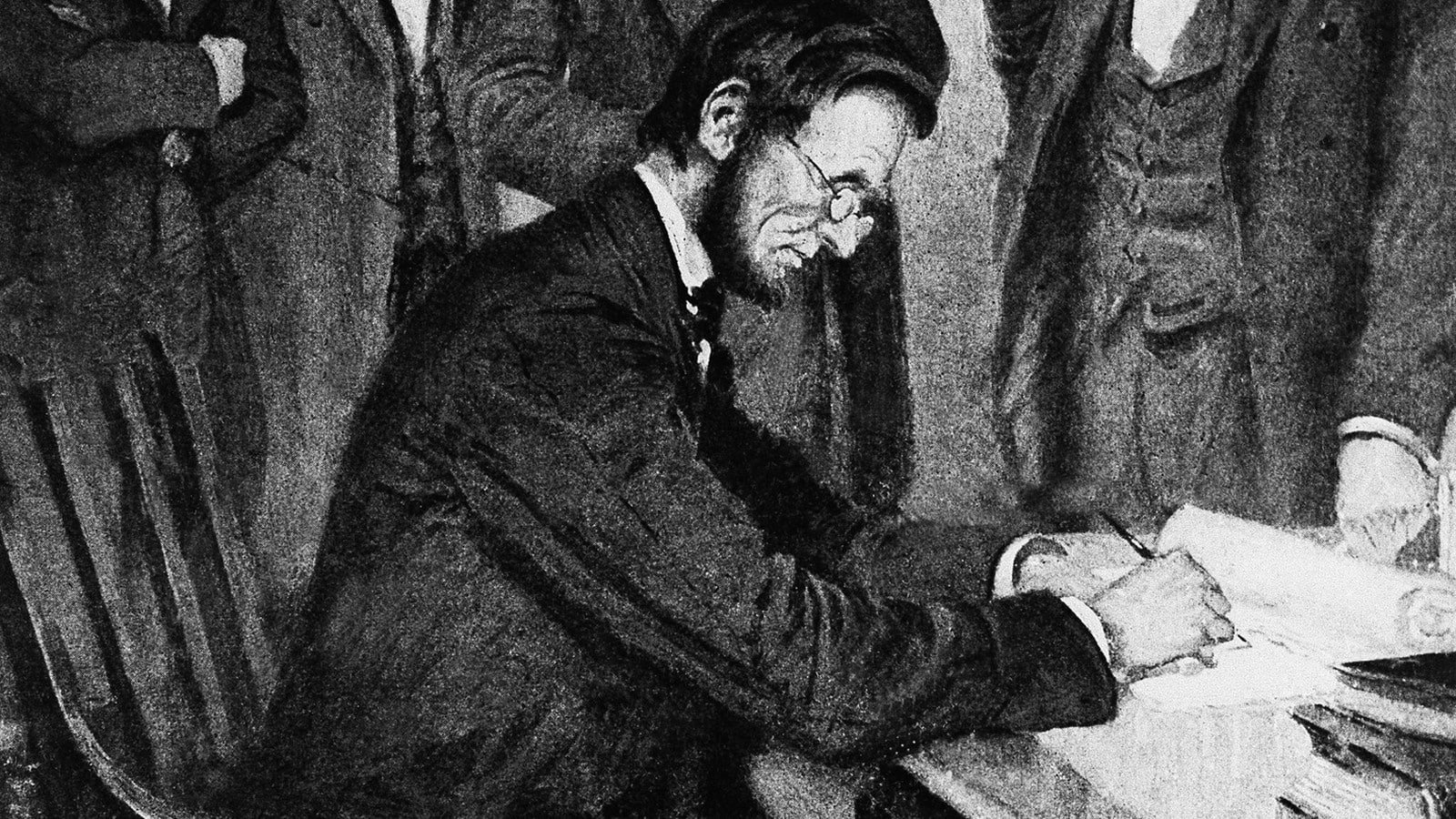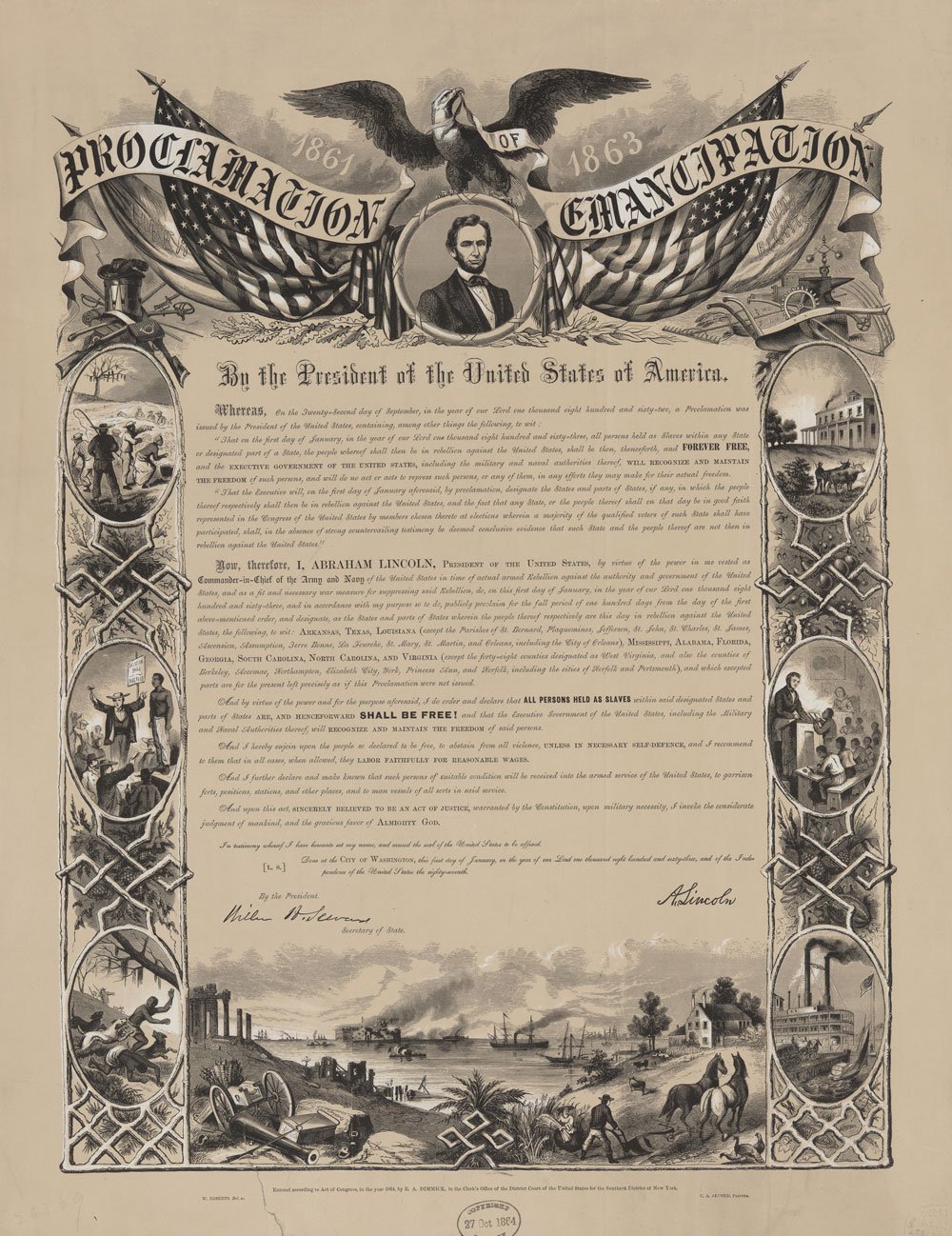Abraham Lincoln issued the preliminary Emancipation Proclamation on September 22nd, 1862. It stipulated that if the Southern states did not cease their rebellion by January 1st, 1863, then Proclamation would go into effect. When the Confederacy did not yield, Lincoln issued the final Emancipation Proclamation on January 1st, 1863.
On September 22, 1862, President Abraham Lincoln issued a preliminary Emancipation Proclamation, which set the date for the freedom of more than 3 million enslaved in the United States and recasts the Civil War as a fight against slavery.
When the Civil War broke out in 1861, shortly after Lincoln’s inauguration as America’s 16th president, he maintained that the war was about restoring the Union and not about slavery. He avoided issuing an anti-slavery proclamation immediately, despite the urgings of abolitionists and radical Republicans, as well as his personal belief that slavery was morally repugnant. Instead, Lincoln chose to move cautiously until he could gain wide support from the public for such a measure.

In July 1862, Lincoln informed his cabinet that he would issue an emancipation proclamation but that it would exempt the so-called border states, which had slaveholders but remained loyal to the Union. His cabinet persuaded him not to make the announcement until after a Union victory. Lincoln’s opportunity came following the Union win at the Battle of Antietam in September 1862. On September 22, the president announced that enslaved people in areas still in rebellion within 100 days would be free.
On January 1, 1863, Lincoln issued the final Emancipation Proclamation, which declared “that all persons held as slaves” within the rebel states “are, and henceforward shall be free.” The proclamation also called for the recruitment and establishment of Black military units among the Union forces. An estimated 180,000 African Americans went on to serve in the army, while another 18,000 served in the navy.

After the Emancipation Proclamation, backing the Confederacy was seen as favoring slavery. It became impossible for anti-slavery nations such as Great Britain and France, who had been friendly to the Confederacy, to get involved on behalf of the South. The proclamation also unified and strengthened Lincoln’s party, the Republicans, helping them stay in power for the next two decades.
The proclamation was a presidential order and not a law passed by Congress, so Lincoln then pushed for an antislavery amendment to the U.S. Constitution to ensure its permanence. With the passage of the 13th Amendment in 1865, slavery was eliminated throughout America (although Black people would face another century of struggle before they began to gain equal rights in the U.S.A. a century after the passage of the 13th Amendment).
Lincoln’s handwritten draft of the final Emancipation Proclamation was destroyed in the Chicago Fire of 1871. Today, the original official version of the document is housed in the National Archives in Washington, D.C.

READ MORE: America’s History of Slavery Began Long Before Jamestown
ATTENTION READERS
We See The World From All Sides and Want YOU To Be Fully InformedIn fact, intentional disinformation is a disgraceful scourge in media today. So to assuage any possible errant incorrect information posted herein, we strongly encourage you to seek corroboration from other non-VT sources before forming an educated opinion.
About VT - Policies & Disclosures - Comment Policy




Adair,,,I am certainly no expert here…in fact i am presently researching this subject.
However…was it really about slavery…as you know the jews totally ran the slave trade
and were the buyers at auction.
I have recently read that the Jesuits/catholic church were behind the whole saga to dilute protestant control in the confederacy…and that Lee either was a jesuit or sympathetic hence his order to Stonewall Jackson at the picket and the “murder/shooting” by his own side….similarly on the union side there were jesuit military commanders that deliberately manipulated the battles to prolong the war.
My view (at present) is that lincoln had absolutely no right to pit american against american….when the whole issue could have been solved by interdicting sea-deliveries and taxation of slave owners.
This may be true but the fact is the Dixies started a shooting war and gave Lincoln all the justification that he needed. That said. It did weaken the nation and allowed the Zionist through the City of London to capture America and hold the Constitution hostage with the Organic Act of 1871.
Very good article. Lincoln basically saved the union. Some say he should have allowed the southern slave states to succeed but I disagree since they could have sorted out their differences diplomatically but instead fired upon Fort Sumpter. The Emancipation Proclamation was a stroke of genius on his part and helped to end the war by bringing his more radical colleagues, the abolitionists and of course former slaves on his side but one thing that is rarely mentioned in the history books is that it was Russia that prevented the British from intervening on behalf of the south and it seems the Democrats have never forgiven them for it https://themillenniumreport.com/2017/09/american-civil-war-when-russia-blocked-british-led-intervention-against-the-union/
Comments are closed.